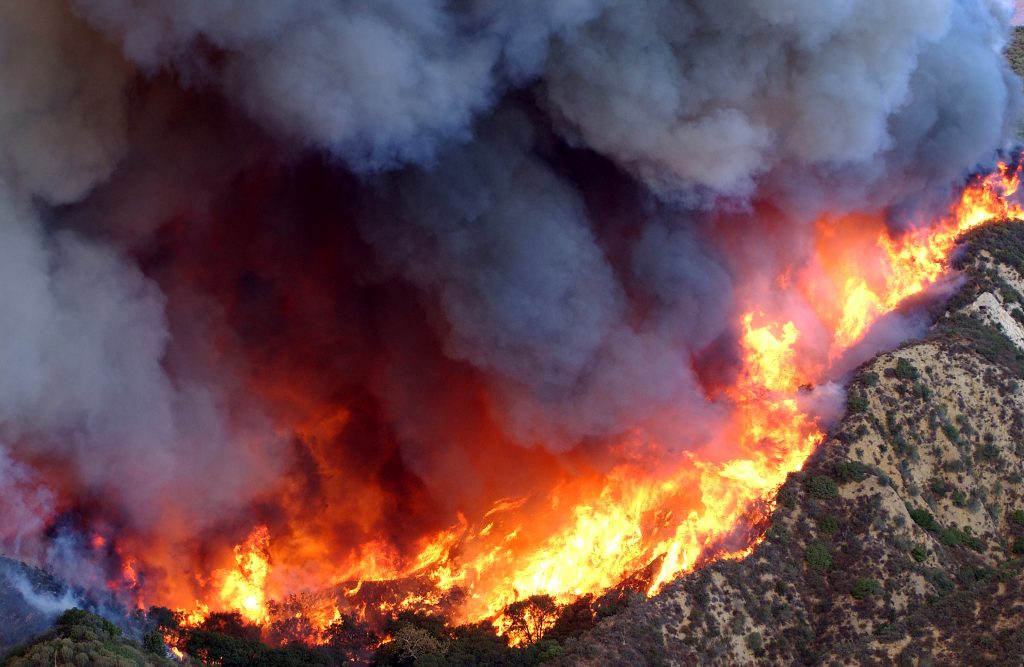Unprecedented: The heatwave causing havoc across the globe

July 30th, 2018
Summer 2018 has brought unprecedented heatwaves to Ireland and the UK, with Northern Ireland and Wales recording their hottest June on record.
Things have been heating up at home up as the thermometer at Shannon Airport hit 32 degrees, the highest June temperature since 1976.
However, this summer’s record-breaking temperatures are not exclusive to Ireland and the UK. Extreme temperatures and associated heatwaves, wildfires and other natural disasters are wreaking havoc from the Arctic Circle all the way to Japan.
Europe
It’s been an unusually hot summer for the European continent with temperatures reaching record-breaking highs in many countries including Norway and Georgia.
In Sweden, firefighters are battling blazes that are among the worst seen there in decades. They have also experienced their hottest July in at least 260 years.
The Swedish government called for international assistance to fight the fires from the European Commission. Italy, France, Norway, Denmark, Germany, Portugal, Lithuania and Poland sent reinforcements to help put out the blazes.
The Arctic Circle has experienced temperatures reaching over 30 degrees. Current temperatures recorded at some weather stations are the highest on record, according to Dr Geert Jan van Oldenborgh, a senior researcher at the Royal Netherlands Meteorological Institute.
“We found that for the weather station in the far north, in the Arctic Circle, the current heatwave is just extraordinary – unprecedented in the historical record,” he said.
In Greece, the government has declared a state of emergency last week as the death toll from wildfires has risen to 91 as especially hot and dry summer weather continues to grip the country.
Amsterdam (34.8 degrees) and Rotterdam (36.1 degrees) in the Netherlands recorded their hottest temperatures last week, while temperatures in the French city of Lille soared to an all-time high of over 37 degrees.

Previous wildfire in Simi Valley, Southern California Photo: U.S. Air Force photo by Senior Master Sgt. Dennis W. Goff)
North America
The blistering heat also affected Canada where up to seventy people are thought to have died in late June and early July as a result of the heatwave. Montreal reached a record 37 degrees on 2 July.
In California, six people have died, seven are reported missing and thousands of people have fled their homes as wildfires continue to surge through the State. The fires come after parts of Southern California reached the hottest readings ever recorded there in early July.
Asia and Africa
In Japan, severe floods killed at least 220 people in early July, followed by heatwave that peaked at 41.1 degrees and left over 35,000 people needed hospitalisation.
In Africa, Africa’s highest ever reliable temperature reading of 51.3 degrees was recorded in the Sahara Desert.

The hottest 3-day average of Tmax in 2018 (ECMWF analyses up to 24 July, forecasts up to 31 July) compared to the highest 3-day maximum temperature in the period 1981-2010 that is currently the “normal” period (ERA-interim).
Climate Change impact on heatwave
An analysis from the World Weather Attribution network (WWA) released last week shows that the abnormally dry conditions across Europe may become the summer norm in the near future.
Researchers compared real-time current temperature data with historical records at seven weather stations in northern Europe, including one location in the Phoenix Park, Co Dublin.
The scientific team found that anthropogenic, or man-made, climate change more than doubled the likelihood of the current heatwave in Ireland. The data also indicates that there are “clear trends towards more heat waves” in Ireland.
The data also shows that the highest anomalies were seen in western Ireland, with heat waves already more than five degrees warmer than the average hottest three days of the year for the period 1981-2010.
[x_author title=”About the Author”]







